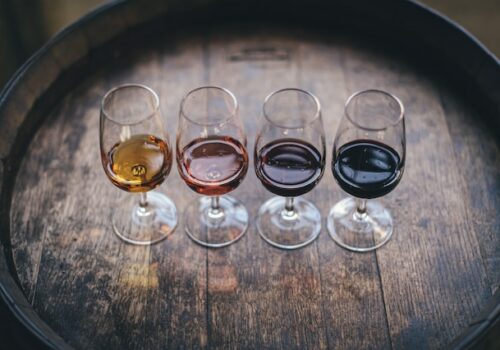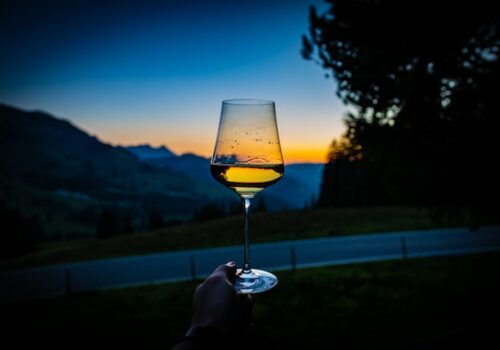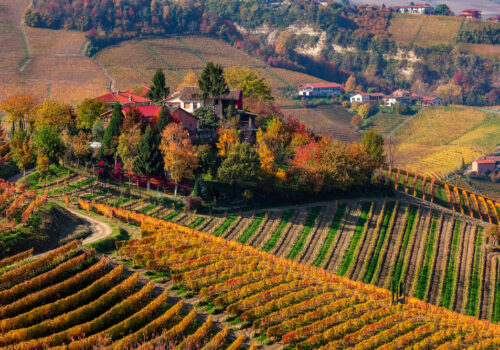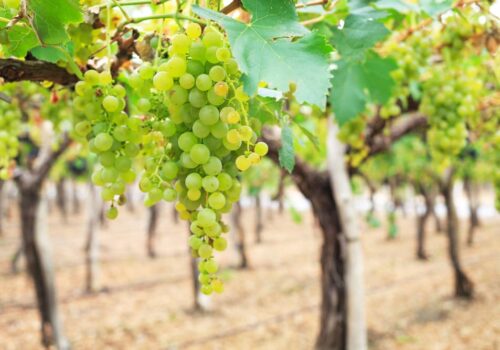Biodynamic or organic wine
At the beginning of the XXI century in Europe came the fashion for natural spirits, but what is biodynamic wine.
ORGANIC WINE.
Winemakers have come to the conclusion that chemical fertilizers and pesticides not only kill plants, but also have a detrimental effect on human health through products that have been treated with them in the growing process. To improve the quality of wine and make it healthy, some vineyard owners decided to abandon chemical preparations and return to growing and treating the vines using ancestral technologies.
The French government, as the largest supplier of high-end quality spirits, began to encourage those wine producers who began to switch to organic or natural land treatment, cultivating the vines and turning the harvested crops into wine.
Organic liquor is a product obtained under natural conditions from vines grown with minimal use of chemical fertilizers and machine labor.
Farmers who run such a farm try to squeeze everything out of the soil the natural way, without harming the soil or the plants it is planted with. Grapes in organic farms can be harvested by hand as well as by special machines. The same applies to the treatment of the area where the vine matures.
When preparing the product you can use sulfur dioxide, which is responsible for the preservation of the drink and keeps it from re-fermentation. Despite this, the preservative mentioned preservative should be contained in organic wine in a minimum dose.
Some winemakers consider organic farming rules as basic for transition to the biodynamic level of alcohol production.
BIODYNAMIC WINE
Once you understand what organic wine is, you can move on to understanding the basics of biodynamics. Winemakers, working on the principle of unity with nature, produce biodynamic wine. In order to be in harmony with the world around them, the owner of the vineyard:
checks with the phases of the moon;
uses organic fertilizers;
tills the land by hand, without using machinery;
does not add sulfur dioxide to his sparkling beverage.
To properly cultivate the land, take care of the vines and harvest, farmers use the lunar calendar, which allows to carry out the necessary manipulations in the appropriate cycle of the night light.
Farmers know that the soil and plants need to be fertilized to ensure a rich harvest. For this purpose, wine masters, fans of biodynamics, use cow horns, where they infuse:
manure;
silicon;
oak bark.
In addition, as a natural fertilizer are used:
Yarrow inflorescences aged in deer urine;
wild chamomile flowers that have stood in cow entrails;
nettle leaves wrapped in peat and left to stand in the ground;
dandelion blossoms soaked in cow’s mesentery;
the juice of valerian flowers;
compost from table scraps and pet carcasses.
Biodynamics welcomes manual labor and imposes a ban on the use of machines. For example, farmers use a wooden plow and horses to plow the field, and ladybugs fight aphids and red spiders. The clusters are also picked and crushed by hand.
To control weeds and to saturate the soil with useful substances, beans, arugula and other siderats are planted between the beds of grapes. Such manipulation allows grape juice to be saturated with unexpected flavors and aftertaste, which is highly appreciated in biodynamic production.
Farmers have noticed that the chemical fertilizer goes straight into the juice, while the organics saturate the plant smoothly – from the soil. The use of substances synthesized in laboratories is allowed in extreme cases, for example, if natural insects cannot cope in 15 days with pests attacking the plants. To save the crop and the vine, chemopreparations are used.
NATURAL WINES
Having understood the difference between organic and biodynamic wines, the grape drinker will have to understand how natural wine is produced and what it is.
Fans of this trend in winemaking point out that natural production is one in which humans interfere with the process as little as possible. In this case, the soil and vines are nourished by the farmer if nature fails.
Natural wine producers use:
Natural (wild) yeast in fermentation;
hand labor at all stages of winemaking;
natural material utensils for bottling and storing the beverage.
No sulfur dioxide is added to natural beverages, so their shelf life is shorter than wine with this preservative.
Natural wine is suitable for the meat and fish lover as well as the vegan. No pet carcasses are used as fertilizer when growing the raw material to make it. Such a natural alcoholic beverage is called “vegan wine” by some foodies.




